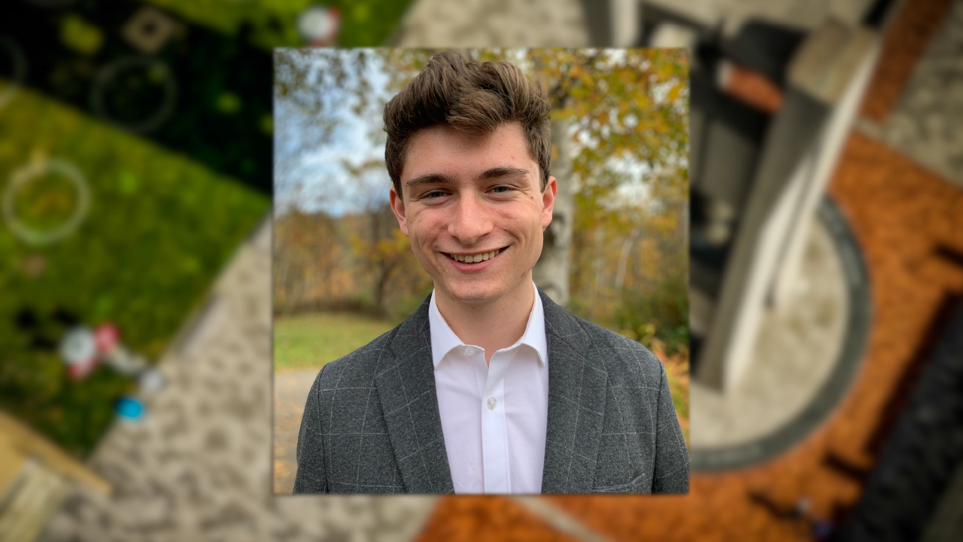Jacob Golden is enrolled in the MPP+1 Accelerated Degree program. He serves as Legislative Director for Philadelphia City Councilmember Mike Driscoll. Continue reading to learn more about his current position and experience in the accelerated degree program.
What is your current position and organization? What is the mission of your organization?
I serve as Legislative Director for Philadelphia City Councilmember Mike Driscoll. As set out in the City Charter, the mission of the Council of the City of Philadelphia is to draft and enact the laws that govern the City. However, in my first year working for Council, we have dealt with everything from the collapse of I95, a gas explosion that destroyed an entire block, the push for the Roosevelt Boulevard Subway, and so many things in between.
Please describe your position and what your day-to-day work looks like.
There is no set day-to-day schedule. As Legislative Director, I design policy, draft legislation, write resolutions and citations, clerk committee hearings, and beyond. One project that has been dominating my day-to-day work is the Joint Task Force on Regulatory Reform for the Department of Licenses and Inspections. I am constantly doing administrative work to make sure meetings are efficient and organized. I often meet with leadership of the Task Force including the Chair and Sub-Committee Chairs. We have worked to fit the ideas of 11 industry leaders into a coherent platform to create recommendations to reform the Department of Licenses and Inspections for the new Mayor and City Council President. One thing that ties everything that I do is teamwork.
How has the MPP+1 program been beneficial to your educational and/or career path?
Working as Legislative Director during the day and going to class at night I often apply what I learn in class to my work. Being able to see topics in real world situations has shown me how valuable an education in the Temple MPP program is. Things I have learned in the MPP+1 program benefit me every single day. This applies to both specific policies I have researched and frameworks for addressing policy problems.
In the Environmental Policy elective, I created an Observational Report and Policy Brief on reforming trash collection in the face of the impacts of climate change. I have been able to share these documents and discuss what I have learned with the Chair of the Committee on the Environment and several other Councilmembers and policy leaders on this topic.
In Bureaucracy and Public Management, we often fell back on the importance of the "Street Level Bureaucrat". This is the person who picks up the trash, delivers mail, or drives the bus. The idea that a policy can be great on paper but fall flat in practice due to the failure to consider those who implement it is now something I consider for every policy solution I discuss. City Council banned plastic bags. This was a great step forward for our sustainability goals. However, insufficient consideration was given to how the Department of Licenses and Inspections would enforce this law. Accordingly, there are still many disposable plastic bags, even though they are illegal. For example, as I assist the L&I Regulatory Reform Task Force in making recommendations to reform the department, I consistently work to ensure that the solutions we pursue make sense for the people on the ground, enforcing our laws.
How do you balance your workload with your coursework?
I try to connect projects to what I do at work. For example, Councilmember Driscoll is the Chair of the Committee on Licenses and Inspections. This has entailed me learning a lot about the department, how it functions, what it does well, and what it doesn't. One project in the State and Local Budgeting course was to create a departmental budget pitch. To build from what I have background knowledge on, I am doing this project on L&I. This allows me to do schoolwork more efficiently and gain a deeper knowledge of a key area in work.
What was your favorite MPP class? Why?
One of my favorite MPP classes was State and Local Budgeting. This course drove home the importance of understanding the budgetary process and its impacts. Anything you attempt to implement in the realm of public policy needs funding. Working in the legislative body of the City means constantly being approached by groups advocating for certain programs that need funding or services worth being funded. Having a deeper fundamental understanding of the rationale behind the process allows me to engage stakeholders more effectively.

